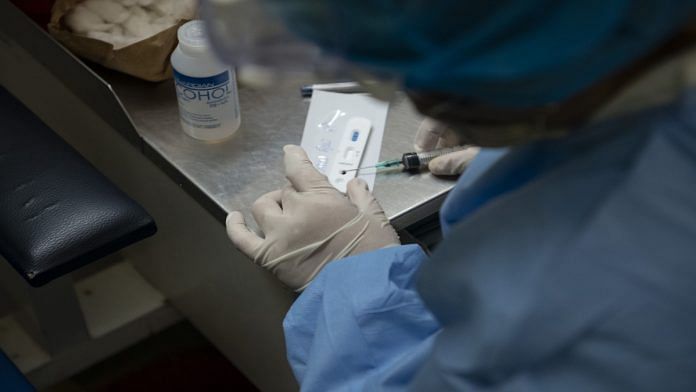New Delhi: Despite new evidence that is improving our understanding of Covid-19 everyday, the number of cases and the death toll continues to climb across the world.
Scientists continue their efforts in developing better treatment plans and vaccines against the virus.
Here are some of the latest research developments on the Covid-19 front.
How a 3-week-old infant with severe Covid-19 was treated
In one of the first reported cases of its kind, a three-week-old infant in critical condition recovered from Covid-19 due to rapid recognition and treatment by physicians in the US.
Researchers at the University of Texas note that as more data is released on Covid-19, the original notion that paediatric patients are spared from the worst of the disease has been disproven.
They caution that children too can get critically ill from this virus.
In the case report, published in the New England Journal of Medicine, researchers said that when the patient was admitted with high temperature, high pulse rate, and low oxygen saturation — they did not wait for the test results to come before moving into a Covid-19 action plan.
The infant was intubated and placed on a mechanical ventilator for five days. While standard protocol calls for noninvasive mechanical ventilation in children, doctors chose to intubate because the patient was in severe respiratory failure and Covid-19 was suspected.
Physicians also placed the infant on a five-day course of hydroxychloroquine and azithromycin. The infant recovered on the ninth day and was sent home without supplemental oxygen.
Also read: First experiment of plasma therapy successful in Maharashtra: Health Minister Rajesh Tope
DNA-based vaccine for long-term coronavirus protection under works
A Canadian healthcare biotechnology company Entos Pharmaceuticals along with US-based company EpiVax is developing a DNA-based vaccine that can generate a highly-effective immune response against the novel coronavirus.
Unlike traditional vaccines, the Fusogenix DNA-based vaccines triggers the patient’s cells to produce viral proteins that the body recognises as foreign and then mounts a potent immune response.
This response will create long-term immunity against infection from viruses such as SARS-COV-2, researchers claim.
As opposed to traditional vaccines, DNA-based vaccines can be rapidly manufactured and easily scaled, which drastically reduces the time to market, according to the team.
Trial launched to test if HIV drugs can prevent Covid-19
US scientists have launched a clinical trial to understand whether existing drug Kaletra, used for HIV treatment and prevention, may work to prevent the Covid-19 infection.
The trial will examine whether post-exposure prophylaxis (PEP) — a medication taken when a person has been exposed to a virus to prevent infection — could halt or slow the spread of Covid-19 in groups of people who have been exposed to a confirmed case.
Kaletra, a combination of lopinavir/ritonavir, has been used in this capacity to prevent HIV in those who have been exposed to the virus.
Researchers claim that earlier studies of this drug as potential prophylaxis therapy in other coronaviruses such as SARS and MERS have been promising.
Also read: Govt estimates show Delhi, Mumbai, Kolkata could see big spike in Covid cases by 15 May
Racial, income inequalities shape Covid-19 risk
Underlying conditions that increase risk of severe illness or death from Covid-19 are more common among minorities and low-income sections of the population due to decades of structural inequalities in education, employment, housing, stress and other factors, a study in the US suggests.
The study, published in the American Journal of Preventive Medicine, shows that African Americans, Native American, and low-income households in the US are much more likely to have asthma or diabetes. They are also more likely to be pregnant or over 65 years old, increasing risk of infection.
Researchers at Boston University also note that these groups are at a heightened risk of contracting the virus since they “are more likely to work in industries that have remained open during non-essential business closures”.



